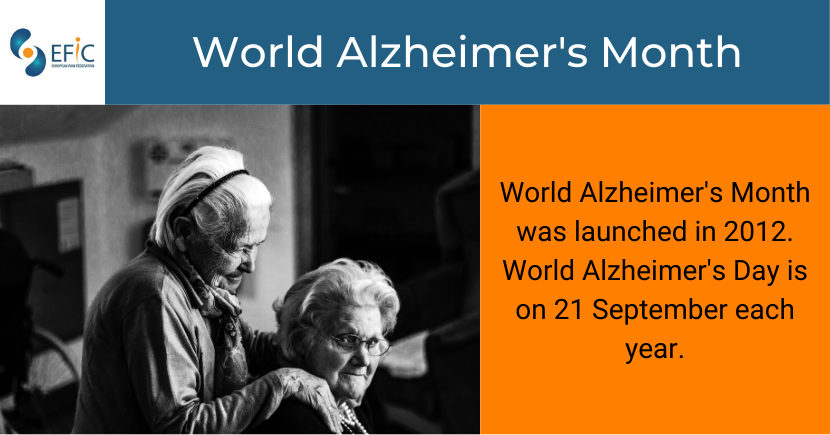About World Alzheimer’s Day
World Alzheimer’s Day is a worldwide campaign to raise awareness and highlight challenges faced by people affected by dementia. It is an opportunity for people and organisations to demonstrate how we can overcome these issues and help people live well with dementia. This year World Alzheimer’s Day main aim to get people talking about dementia and urge everyone to join in the conversation by becoming Dementia Friends.
Pain in dementia
Dementia is one of the biggest challenges we face, with nearly 50 million people living with dementia worldwide. In dementia, individuals do perceive pain, but the interpretation and cognitive and emotional evaluation of the pain may be different. Individuals are at high risk of underdiagnosed and untreated pain as their ability to recognise and communicate their pain might be impaired due to dementia disease processes.
How to effectively assess pain in individuals with dementia?
While the reliability of patient self-reported pain may decline as an individual’s dementia deteriorates, self-report is still an option for pain assessment in the early stages of dementia, when the individual is still able to recognize and verbalize pain. Clinicians should always use easy to understand scales, repeating the question and the instructions on how to use the scale, and leaving enough time to respond. Pain assessment scales often use observational items relating to facial expressions, vocalisation, and body movements. These can be completed at rest and during movements or transfers if clinicians think pain may be more associated with movement related tasks. Popular scales include the PACSLAC, PAIC, MOBID2, DOLO-Plus, and PAINAD. Where individuals have significant neuropsychological deficits like significant memory and speech impairments, clinicians should not interpret a lack of self-reported pain as evidence of no pain.
Managing pain in dementia
Much uncertainty surrounds the most effective treatments for pain in dementia, as trials can be difficult to conduct. Pain management should be delivered in an interdisciplinary manner due to the multicomponent nature of the condition. Since dementia is most prevalent among older adults, adverse reactions to drugs should always be considered. Therefore, non-drug interventions (e.g physical activity, psychological activities, social activities) should always be the first-line care option for pain.
Read also more about Pain Management in Dementia factsheet from the Global Year Against Pain 2019.
For more information and to access the resources relating to World Alzheimer’s Day visit here
